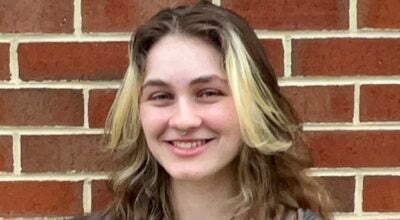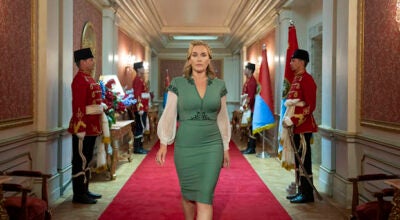Richmond’s Willow Lawn — a cultural jolt
Published 4:56 am Thursday, July 7, 2016
By the mid-1950s, it was all about buying stuff.
Richmond’s tattered Confederate history was finally diminished. Consumed by a mid-20th century, post-World War II culture, the city reflected a stubborn social cohesion, suburbia expansion, adding dissimilar Americans, who settled permanently in the Richmond area.
By 1956, as Gogi Grant sang “The Wayward Wind,” our confederate capital was indeed, “a restless wind that yearns to wander.”
Havens & Martin, 3300 W. Broad St., with its black/white television signal, on something called Channel 6, introduced those modern worlds from far non-southern places: Chicago, Philadelphia and New York City. The iconic Channel 6 tower was already two years old (all 1,049 feet above sea level). And nudging our curiosity, color television was becoming a taunt as well.
Enter a thriving concept – a place Richmonders had never seen: Willow Lawn Shopping Center, opening in 1956.
Willow Lawn generated massive opportunities for varied shopping experiences — in one setting. An also-ran Southside Plaza followed — both centers symbolized a cultural leap from Richmond’s downtown shopping traditions. At first, no one got a handle on what this revolution would generate — a vast behavioral switch.
My exit from Richmond to Hampden-Sydney College in fall 1956 simply separated me from the significances of commercial emergence. Arriving home around Thanksgiving, our freshman-year presence was less than appreciated at 5905 Crestwood Ave. Shaggy in appearance, absent of haircuts — adhered with genuine sloppiness associated with freshman college life, was not welcomed. Before entering the house, our formidable VPI (now branded “Tech”) military dad stopped my entrance: “Go to Willow Lawn — get cleaned up before you come in here.” He meant it.
Quickly discovering Major’s Barbershop there — unlike anything I’d seen in barbering before, there were gorgeous gals running around doing men’s nails and giving extraordinary shampoos. As a proud veteran of the Spartan Carl’s Barbershop on Libbie Avenue — since the 1940s — this was another world.
New mall offerings, from North Broad Street to South on Monument Avenue, included Highs Ice Cream, Willow Lawn Cleaners, GIANT Food (this appeared to be a store of the 21st century, whatever that would be), Peoples Drug, ABC Store (more to follow), G.C. Murphy’s, Eljos, Jacobs & Levy, Thom McAn Shoes (it was the best inexpensive guy shoes around), Bob’s Hobby Shop, Gary’s Records, Rountrees and LaVogue.
In the actual mall were Worth’s, Flair, Junior Shoe World, Russell & Holmes, Shevels, My Maternity Shop, Jules Hair Styles, Burnetts, Jim’s Keys, Fannie Farmer Candy and Safeway at the back.
The wonderful Barrel Restaurant would find a place on the back side.
Across from the mall were Miller and Rhoads, next to S&W Cafeteria. Toward Monument Avenue were Edie’s, National Shirt Shop, Lerner’s, Woolworths, Baker’s Shoes, Eton, Ltd., The Home Shop, a restaurant (Copper Skillet, then Aunt Sarah’s, then a pizza place, Singer Sewing and Fabrics and J.C. Penney.
The Barrel Restaurant was a great place to drink beer with friends, and listen to the modern jazz from Richmond’s Newt Thomas Trio. It was Willow Lawn’s contribution to the watering-hole culture.
I gained an enviable ABC store clerk job there in 1958, which provided great money and working conditions for a college student. The store was managed by a diminutive guy from Southside Virginia. Mr. Short was a by-the-book manager — very professional — importantly tolerant of me.
Short was particularly infatuated by a Connie Francis song played incessantly by WLEE AM on a transistor in his back office.
He would chew gum, hum, whistle and sing songs to himself constantly. Who could forget that?
Later, the Hope Harbor experience at Willow Lawn’s ABC Store left me sober. Harbor was a modest treatment center for alcoholics on far West Broad Street. The owner/manager would appear weekly, with permit, purchasing all the whisky legally allowed. In those days, alcoholics were brought down gradually by fewer drinks daily. Recovery was managed and treated with that method. As a college kid, the shopping center continued my education.
Musing about all this today, one quietly suspects online shopping is intensifying, bringing dim outlooks for mall shopping generally.
My thought is Willow Lawn will continue to live on and on.
Raymond B. Wallace Jr. is a retired public classroom teacher and a Hampden-Sydney College graduate. His email address is rbwallace01@verizon.net.



